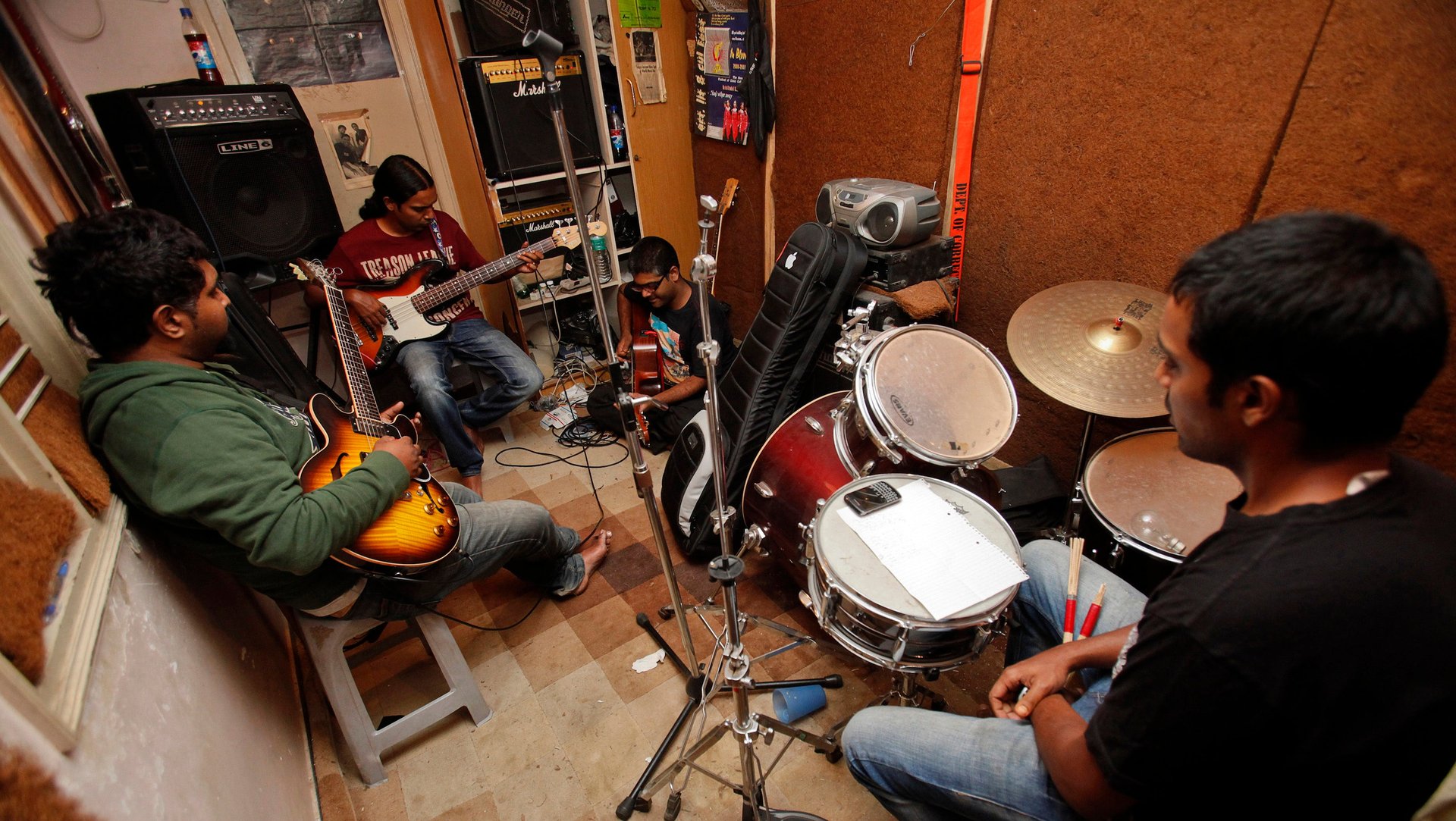Music streaming is forcing record labels to try playing nice with artists
Big shifts in the music business tend to make artists wary, and perhaps rightly so. With the exception of superstar acts like Adele and Taylor Swift, musicians and songwriters across the board have seen their earnings dwindle thanks to the new payment models of digital downloads and music streaming—and they’ve been plenty vocal about their complaints. Some major acts like Radiohead‘s Thom Yorke have lashed out against some of streaming’s less-than-ideal royalty cuts.


Big shifts in the music business tend to make artists wary, and perhaps rightly so. With the exception of superstar acts like Adele and Taylor Swift, musicians and songwriters across the board have seen their earnings dwindle thanks to the new payment models of digital downloads and music streaming—and they’ve been plenty vocal about their complaints. Some major acts like Radiohead‘s Thom Yorke have lashed out against some of streaming’s less-than-ideal royalty cuts.
Much of the ire is aimed at record labels: the giant, corporate entities that negotiate royalty payments with streaming music services and have long been accused of hoarding profits at artists’ expense. But Thursday (Feb. 4), one label started to sing a surprising new tune. Warner Music Group—one of the “big three” record labels in the world, along with Sony Music and Universal Music—declared it will pay artists a portion of whatever it makes from selling its ownership stakes in services like Spotify, if (or when) those businesses ever go public.
Not to be outdone, Sony Music quickly shouted out its own promise to do the same.
At this point, a Spotify IPO is still months away—if one even is to happen. That means Warner and Sony are only making vague, hypothetical commitments. It’s also unclear exactly how much money artists stand to make from the maybe-deals: Warner and Sony didn’t disclose the size of their stakes in streaming services (although some estimate Warner’s hold in Spotify to be around $200 million, assuming a recent Spotify valuation of $8 billion)—nor did they explain how they would divide and distribute the payouts made to musicians. Artists are unlikely to snag any sizable wealth from these deals, analysts and industry experts say.
Still, the twin announcements mean a lot on their own. They’re signals from record labels that artists are valuable, and that their frustrations about profit are being heard—serving, as MIDiA Research analyst Mark Mulligan told Bloomberg, “even more than a gesture or a token of good will… almost a statement of ideology.”
The language Warner used is particularly telling. “As there is an ongoing debate in the media regarding how artists should be paid for use of their music on streaming services, we wanted to take this opportunity to address the issue head-on,” CEO Stephen Cooper said to investors on a company earnings call yesterday. Clear is the message here: Warner wants to recognize that artists—and their concerns—do still matter.
Of course, the extent of artists’ power within their labels won’t be put to the test until all these hypothetical events really play out. But with the biggest major label, Universal Music, now being called upon to make a pledge similar to Warner and Sony’s, it seems the record industry is finally due to start paying more attention to the actual people on whom they hinge their business.